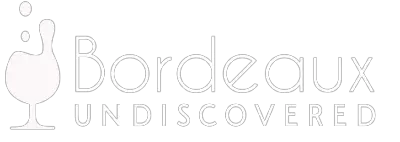The Drinks Business have released a very interesting article by Patrick Schmitt covering an interview with Jeremy Howard CEO of Slurp: “It’s An Example of the En Primeur System Breaking Down Completely”.
released a very interesting article by Patrick Schmitt covering an interview with Jeremy Howard CEO of Slurp: “It’s An Example of the En Primeur System Breaking Down Completely”.
Slurp was founded in 2004 and has moved rapidly to become the largest stock holding internet retailer with 1,500 lines in its own depot for next-day delivery and 7,000 products advertised online.
Slurp has moved into the fine wine sector and 30% of the internet-only company’s total global revenue is from fine wine.
Back in June I wrote about the problems faci ng wine merchants over Chateau Rieussec in “Chateau Rieussec – The Next Big Thing? The Dilemma of a First Growth”. It’s common practice in Bordeaux to make a conditional offer to merchants that ties in a different wine at En Primeur to the one being sold.
ng wine merchants over Chateau Rieussec in “Chateau Rieussec – The Next Big Thing? The Dilemma of a First Growth”. It’s common practice in Bordeaux to make a conditional offer to merchants that ties in a different wine at En Primeur to the one being sold.
In effect you are sometimes forced to buy cases of Chateau X when you only really want Chateau Y to seal the deal. Coming from the Lafite Rothschild stable Rieussec was being offered alongside Lafite’s more well known wines – Duhart Milon for example.
The result has been that merchants are scrabbling for their allocations of Lafite etc and, as Rieussec was tied in to the conditions of sale, cases of Rieussec flooded the market.
According to the Drinks Business it was Slurp’s “ability to shift substantial quantities of Rieussec 2010 over the summer which highlighted Slurp’s new-found significance in the fine wine sector.”
Jeremy Howard said that:
“In order to secure allocations of Lafite, négociants take large parcels of Rieussec [which is part of the DBR Lafite portfolio], which they then sell onto the UK merchants, who don’t have a use for Rieussec at the price they are supposed to sell it, so they dump it anonymously on the Liv-ex exchange.”
The Drinks Business  went on to explain:
went on to explain:
So, while Rieussec was released onto the market at the end of May for €48 (£42) per bottle, or over £500 per nine-litre case, by July it was selling for as little as £200 on liv-ex.com. Once Rieussec hit this low price point,
“we bought very large numbers”, records Howard – which explains Rieussec’s position as most traded label by volume on the Liv-ex exchange during July.
With the iconic Sauternes snapped up, Slurp then offered Rieussec to its customers for £250, and although Howard is reluctant to give an exact figure, he does boast: “We sold hundreds of cases.”
Importantly, the deal, believes Howard, has widespread implications for Bordeaux pricing. “It’s an example of the en primeur system breaking down completely,” he says. “The château and négociants tried to control the price but failed in this case.”
In essence it’s increasingly the m arket, not the châteaux, that set the price, and, like 2009, he sees cru-classé Bordeaux continuing to trade at a discount to initial release prices, meaning, next year:
arket, not the châteaux, that set the price, and, like 2009, he sees cru-classé Bordeaux continuing to trade at a discount to initial release prices, meaning, next year:
“Customers will be saying why buy in July when by the end of the summer the wines will be trading at a lower price?”
Perhaps I should have entitled my blog back in June on Rieussec “The Dilemma of a Wine Merchant”? Are we witnessing the end of En Primeur?

